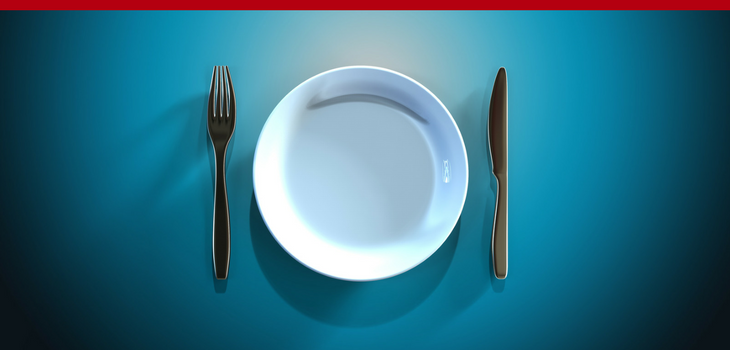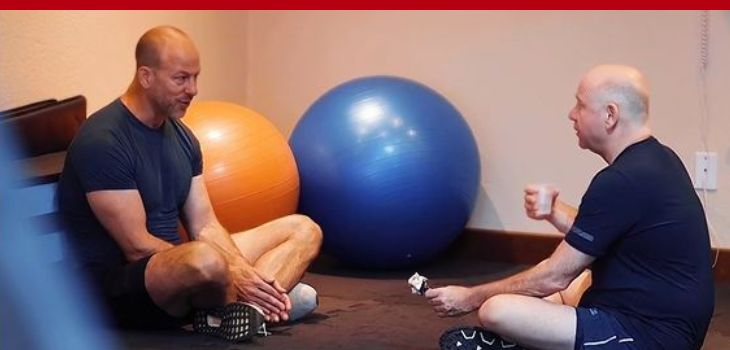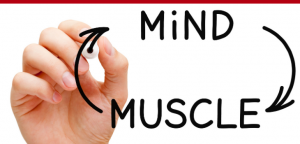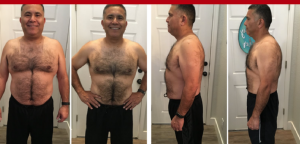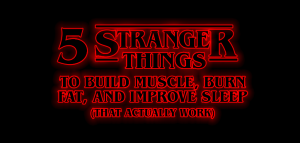by Ted Ryce
292: Intermittent Fasting 101: Everything You Need To Know with Ted Ryce
Do you want to learn what intermittent fasting is and if it’s better for losing weight and building muscle than traditional dieting? Then keep reading this article.
Intermittent Fasting is one of the hottest topics in the weight loss industry—even though it has been practiced for thousands of years in various religions.
I first heard of intermittent fasting around 7-8 years ago. It was presented as a superior method to lose fat due to its hormone optimizing benefits.
“It lowers insulin and naturally increases growth hormone. So you lose fat like crazy with intermittent fasting!”
Although that sounds good, it hasn’t turned out to be true.
In this article, we’ll use science and common sense separate fact from fiction so you know the pros and cons of using intermittent fasting over more conventional weight loss methods.
What is Intermittent Fasting?
I’ve got news for you: you’re already doing intermittent fasting.
Yep. It’s true.
You don’t wake up in the middle of the night to eat, do you? Of course not, right? Well, then you’re doing intermittent fasting.
Intermittent fasting—also known as time-restricted feeding—alternates between periods of normal food intake with periods (usually 16–48 h) where you eat a little or don’t eat at all.
There are actually several popular versions of intermittent fasting:
- 16/8. In this method, you fast for 16 hours and eat all your meals in the 8-hour feeding window. This is also known as “Leangains protocol” that was popularized by fitness expert Martin Berkhan and is the most common version I get asked about.
- 5:2 Diet. In this method, you either go without eating or severely limit how much food you eat for 2 days during the week and eat normally the rest of the week.
- Eat-Stop-Eat. In this variation, you fast for one or two entire days per week. It was popularized by Brad Pilon and has been popular for a while now.
- The Warrior Diet. In the warrior diet, you only eat a small number of raw fruits and vegetables during the day. Then you have one 4-hour feasting window at night. Fitness expert Ori Hoflmekler popularized this method.
- Random Meal Skipping. While other versions of intermittent fasting have specific times periods when you fast, you don’t need a structured plan to get the benefits of fasting. In this method, you simply skip meals when you don’t feel hungry or are too busy to eat.
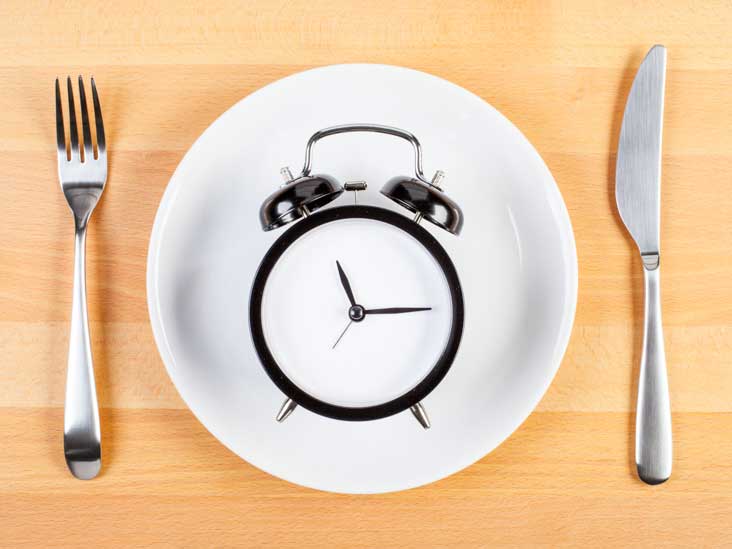
How Does Intermittent Fasting Work?
When you eat food, your digestive system breaks it down into various molecules that your body can use.
Insulin gets released and transports the nutrients into the cells in your body. Depending on the amount and types of food you eat, insulin can remain elevated for several hours.
When your body is digesting and absorbing the nutrients in your meal, you’re in a “postprandial” or “fed” state.
As the body uses up the nutrients from the last meal, it begins to enter the “fasted” or “postabsorptive” state. And once it uses up its immediate fuel stores, it turns to stored fuel—like body fat—for energy.
It’s important to note that every day your body moves between “fed” and “fasted” states.
That’s what I meant when I said that you’re already doing intermittent fasting because you naturally alternate between the fasted and fed states throughout the day.
[tweet_box design=”box_16_at” float=”none”]“You naturally alternate between the fasted and fed states throughout the day. The purpose of intermittent fasting is to extend the amount of time you spend in the fasted state.”[/tweet_box]
If you’re like most people, you eat in the morning before work and have your last meal a few hours before bed. So you’re “feeding window” is usually 10-13 hours. Then you fast throughout the night for 11-14 hours (depending on when you eat your last meal and what time you eat breakfast).
And although you’re not eating for 11-14 hours, you only truly spend 6 to 8 hours a day in a fasted state. (Remember a fasted state is when your meal is fully digested and your insulin levels have returned to normal.)
The goal of intermittent fasting is to increase the amount of time you spend in a fasted state while reducing the time you have to eat your meals.
As a result, you’ll eat less food and lose fat.

Does Intermittent Fasting Work?
If you ask someone who’s read a couple of articles about intermittent fasting, there’s a strong chance they’ll tell you that intermittent fasting works great for losing fat because it lowers insulin and raises growth hormone.
They may even have a personal story of how they lost weight doing intermittent fasting.
Although it’s true that fasting will lower insulin and raise growth hormone, fat loss occurs when you eat fewer calories than you burn.
Related Post: 5 Reasons You’re Not Losing Fat Even Though You Eat Right And Exercise
Without eating fewer calories than you burn, you will not lose weight. So even though you may have lower insulin levels, scientific research has clearly demonstrated that insulin is not the key to losing weight.
A 2017 study entitled “A Review Of The Carbohydrate-Insulin Model Of Obesity” clearly demonstrated that total calorie intake was the mechanism by which people lose or gain weight.
If that’s the case, what specific benefits do intermittent fasting offer over traditional calorie restriction?
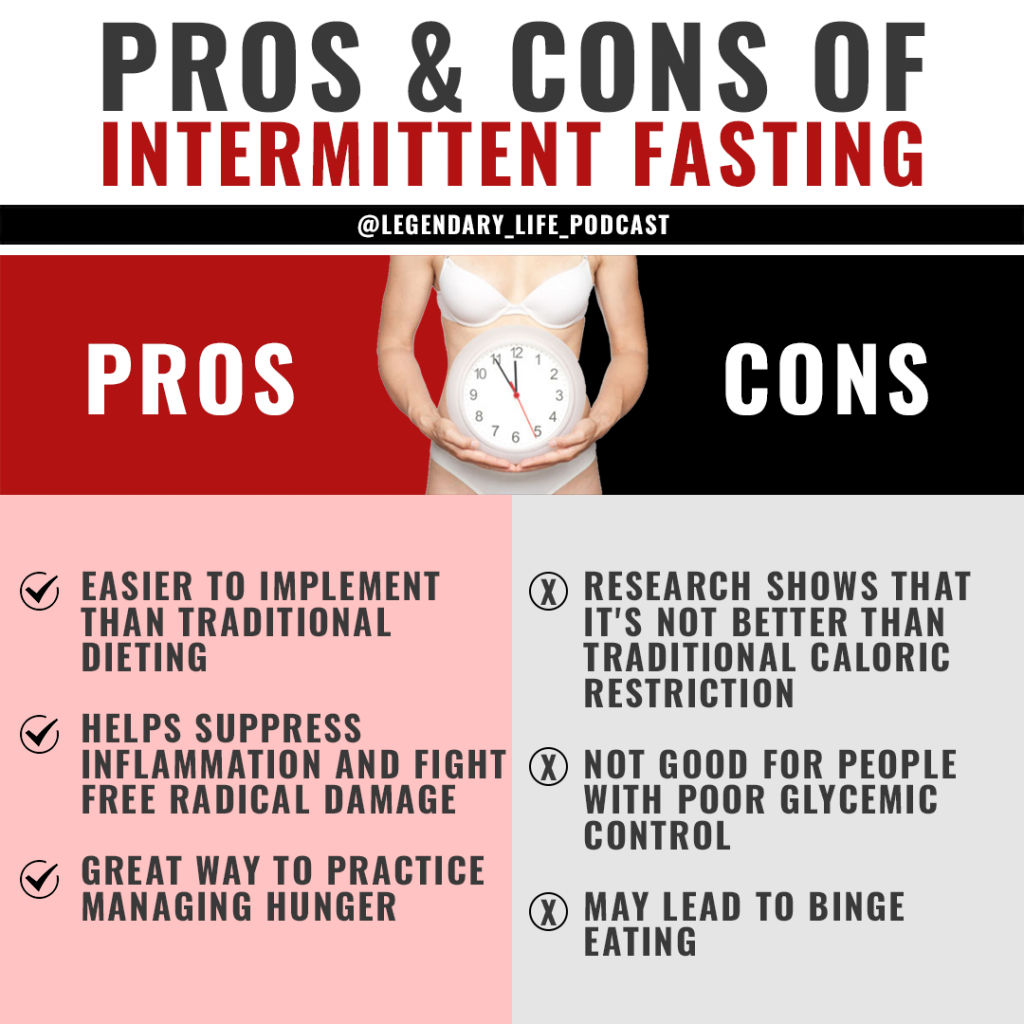
The Benefits of Intermittent Fasting
I know we’ve covered a lot of information. So in this section, I’ll summarize what I think are the practical benefits of intermittent fasting.
Benefit #1. Intermittent Fasting makes your life simpler.
While calculating your calories and tracking your macros is a great way to lose fat, it’s complicated. And I’m a big fan of making life simple and reducing stress.
Instead of worrying about what to eat for breakfast, you just skip it. Have a glass of water and a cup of coffee or tea and you’re good to go.
One of the biggest benefits I personally experienced from intermittent fasting was that I could go without eating breakfast where I used to stress to wake up early enough to cook and eat before I started my day.
I realized that I really didn’t need to eat until lunchtime. It felt free from the stress of having to eat breakfast every morning. This is a big benefit in my book.
Benefit #2. Intermittent fasting is easier than traditional dieting.
The number one reason why most diets fail is that people will revert back to what’s easiest for them. It’s hard to count calories and track macros for long periods of time. We’re busy and life is already stressful enough.
And although I think every single person can benefit from tracking the macronutrient content of their food, it’s not something that most people will be able to do for the rest of their life.
However, learning to skip meals or to eat in a specified period of time is easy to keep up. I find myself returning to intermittent fasting because of this.
In my opinion, the simplicity and ease of intermittent fasting is the best reason to try it out.
Benefit #3. Intermittent fasting may offer health benefits even without restricting calories
Many if not most of the benefits of fasting come from losing weight and body fat reduction. That said, some studies have found health benefits even if the participants didn’t lose weight such as improved fasting insulin.
In an animal study, mice shifted their body fat stores from visceral regions to subcutaneous regions. As you may know, visceral fat (the fat around your abdominal area) is connected with chronic diseases like:
- Metabolic syndrome
- Cardiovascular disease
- Prostate cancer
- Breast cancer
- Colorectal cancers
If this animal research pans out in humans, intermittent fasting may be a way to reduce visceral fat without exercise or eating less. However, this is a BIG if. Several systematic reviews, like this one, this one and this one, have found that applying animal research to humans isn’t always practical or meaningful.
Benefit #4. Intermittent fasting is a great way to practice managing hunger
Hunger is the reason why many people give up on losing weight. However, managing hunger is an essential skill for anyone who wants to get in shape and stay there.
In our comfortable modern world, being uncomfortable—whether its hunger, cold, heat, exercise, etc.—is generally regarded as a bad thing.
The reality is that getting comfortable with being uncomfortable is a good thing when approached the right way.
In fact, intermittent fasting helped free me of my ravenous appetite and severe hunger pangs. I learned that I could go without eating food for longer than I thought.
Although it was a little uncomfortable, I learned that it was definitely doable. And none of the bad things I thought was going to happen ended up happening.
Eating too much is one of the key behaviors that is making us fat and causing us to develop chronic diseases.
Intermittent fasting is a simple (although not easy) way to eat less and learn the skill of managing our hunger.
Should You Try Intermittent Fasting?
After reading all the benefits I listed, you might think that fasting is awesome for every person in all situations. But fasting definitely NOT for everyone.
Ask yourself these questions to see if fasting is right for you:
- Do you normally like to skip meals because you’re not hungry?
- Do you have good energy levels even if you don’t eat?
- Do you manage stress well?
- Is it easy for you to manage hunger?
If you answered yes to any of the above questions, then you should give intermittent fasting a try.
- Do you normally like to eat at regular times (breakfast, lunch, and dinner)?
- Are you very active first thing in the morning?
- And do you get stressed or tend to make bad poor food choices if you go without food for too long?
- Do you get “hangry” when you go without eating?
- Do you have poor glycemic response to food?
- Are you pregnant?
- Are you underweight?
- Are you younger than 18?
- Have you ever been diagnosed with an eating disorder like anorexia or bulimia?
If you answered yes to any of the above questions, then you should NOT try intermittent fasting.

Like this show? Please leave us a review here — even one sentence helps! Consider including your Instagram handle so we can thank you personally.
Frequently Asked Questions
Q: Does intermittent fasting help you live longer?
Most articles on intermittent fasting always talk about how it can increase your lifespan.
Unfortunately, if you actually read the research that your health guru’s blog cites, you’ll see several issues.
One important problem is that most of the research on fasting and longevity is based on animal studies.
The original 1945 study that discovered that fasting increases lifespan was done on mice.
Since we’re not mice or worms, you have to seriously question how relevant the research findings are to humans. Several systematic reviews, like this one, this one and this one, have found that applying animal research to humans is rarely meaningful.
To give you an example of this, a 2017 Harvard study on fasting and longevity found that C. elegans (i.e. a worm) lived much longer when researchers fed them for two days then fasted them for two days.
The issue here is that C. elegans only lives for two to three weeks. Let’s apply this same time frame to human beings. That means you’d have alternate from eating to fasting every 10 years.
You might find going without food for a decade a little difficult to do…you know…because you’ll die.
But this gets reported in the media as “Harvard study shows how intermittent fasting and manipulating mitochondrial networks may increase lifespan.”
Then your favorite health guru writes a blog on how intermittent fasting helps you live longer and lose fat. It’s no wonder why so many people are confused and believing myths about fasting and health information in general.
Q: Is intermittent fasting better than traditional weight loss methods?
The research has shown mixed results with intermittent fasting for weight loss.
For example, skipping breakfast led to weight loss in one study but in another study, it did not. In fact, the second study—which was done in lean adults—eating breakfast led to higher activity levels and more stable blood sugar levels throughout the day.
A systematic review (which is an analysis of multiple studies) published in the journal Molecular And Cellular Endocrinology found that intermittent fasting offered no significant benefits to weight loss, body fat percentage, insulin sensitivity or hormones compared to conventional weight loss methods.
So that’s what science has to say about it. What about real-life examples of people who’ve tried intermittent fasting?
Personally, I experimented and worked with many clients who’ve tried intermittent fasting to lose fat.
I’ve seen clients use it effectively to lose weight and keep it off.
I’ve also seen clients who developed binge-style eating patterns from skipping meals.
You’re going to have to experiment with it for yourself to answer this question.
Q: What should you eat during intermittent fasting?
My recommendations of what to eat don’t differ on an intermittent fasting protocol.
You should still eat the following:
- Lean protein at every meal to build (or maintain) muscle and to keep you satisfied.
- A variety of deeply colored vegetables to get enough vitamins, minerals, and phytonutrients.
- Carbohydrates from whole grains and starchy vegetables for energy, vitamins, and minerals.
- A mix of saturated, polyunsaturated and monounsaturated fats for fat-soluble vitamins and other nutrients.
If you think that you can skimp on nutritious food and eat cookies and potato chips because of fasting, you’re going to be let down.
You can still overeat in your feeding period and put on fat—even if you don’t eat anything for 2 days every single week.
Think of intermittent fasting as a way to manage the amount of food you eat instead of a license to eat whatever forbidden goodies you had in mind.
The good news is that since you’re restricting the time that you eat, it will be harder to overeat. But again, it’s still possible. Especially if you binge on high-calorie, hyperpalatble junk food.
No matter what diet or nutritional approach you take, food quality is always important to your health.
And remember…
Weight loss happens whenever you take in fewer calories than you burn. Intermittent fasting doesn’t get around this fact.
Q: Can you drink coffee during intermittent fasting?
When intermittent fasting was first getting popular, “gurus” would say that you shouldn’t have eat or drink anything during a fast except water, coffee, tea and branched chain amino acids. And if you did have something other than these, it would ruin the insulin lowering, growth hormone-boosting effects of fasting.
Now we know better.
Most of the health benefits of fasting have to do with the fact that you’re eating less than before. And like I mentioned earlier, those benefits go away if you eat the same amount of food in your feeding window.
So yes, you can drink coffee during an intermittent fast. And it will help you with hunger.
When I first tried intermittent fasting, I relied heavily on coffee to suppress my hunger so I could make it to lunchtime. It worked well although I did feel slightly fatigued and jittery (aka tired and wired) by the time I got to eat my first meal. And working out in that state was difficult.
Then I tried putting butter and MCT oil in my coffee after reading about it in Dave Asprey’s Bulletproof Executive blog. That helped me feel less jittery as the enormous amount of fat helps slow the absorption of caffeine into your body.
However, eating 400 calories of processed fat (which is exactly what butter and MCT oil are) isn’t the best idea if you’re trying to lose fat.
So it’s best to stick with plain black coffee if you can. You can try a teaspoon of MCT oil or heavy cream if you need a little flavor or texture.
Q: Do you lose muscle during intermittent fasting?
Back in the day, when I thought I knew a lot about nutrition but really didn’t, I used to think that if I skipped a meal, muscle would magically disappear off my body. And if I skipped enough meals I’d end up weak and thin like I was before I started lifting weights.
So when I heard about intermittent fasting, one of my first concerns was whether I’d lose muscle from going without eating.
It turns out that how many meals you eat in a day doesn’t matter much for fat loss. And how many meals you eat might be important if you’re looking to build muscle.
Muscle is the result of resistance training and eating enough protein. So if you’re hitting the weights regularly and eating protein in every meal, you shouldn’t worry about losing muscle from most variations of intermittent fasting.
However, there is a study that found fasting for 20 hours decreased muscle-signaling pathways. So if your goal is muscle growth, it’s probably best to keep your fast to 24 hours at most.
Another study found that fasting up to 40 hours didn’t cause muscle loss. So if fat loss is your goal, you’d be safe to fast up to 40 hours with no worries about losing muscle.
Q: Does fasted exercise help you burn more fat?
Many proponents of intermittent fasting suggest that you should workout in a fasted state to increase fat loss.
Interestingly, there’s some research to back this up.
Several studies have shown that ingesting food—especially carbohydrates—before exercise can slow down lipolysis (releasing fat from your fat stores) and fat oxidation (fat burning).
In plain talk, when you exercise in a fasted state, your body is better able to mobilize and burn your stored body fat.
However, there are two issues with fasted workouts:
- Working out in a fasted state increases muscle breakdown.
A study found that working out in a fasted state reduced muscle growth and increases muscle breakdown.
This is the opposite of what you’re going for. If you lose fat AND muscle, you’re going to look emaciated and/or flabby. This isn’t good for your health or trying to impress your friends at the pool party.
- Working out in a fasted states leads to poor performance in the gym.
I don’t have any research to link to. Just my personal experience and my experience with clients who try fasted workouts.
Q7: I’ve done fasted workouts on and off for a few years. The workouts always felt more brutal than training in the afternoon.
Of course, I was working out first thing in the morning, which has been shown to be less than ideal for getting results. But this is usually the time people train when they are fasting.
This is why many intermittent fasting gurus suggest using 10 grams of branched chain amino acids (BCAAs) before a fasted workout.
Q: What are some good resources on intermittent fasting?
The best way to learn about intermittent fasting is to give it a try. No amount of research can make up for the experience you have.
That said, you can learn a lot about how to tweak intermittent fasting to work for you by reading articles like this and the ones referenced below.
Be careful about who you listen to. Most health & fitness information on the Internet is more marketing than science. Or ignorant people who want to make money from online fitness but aren’t quite qualified to do so.
With that in mind, here are some resources I recommend.
Intermittent Fasting Resources
Dr Bojan Kostevski wrote a thesis called The Effects of Intermittent Fasting on Human and Animal Health. It reviews the research on the health effects of fasting and is the first place you should go to read up on the science behind intermittent fasting. You can read it here.
John Berardi, who’s been a guest on Legendary Life several times, put out a great free report on intermittent fasting. If you don’t know John, he’s one of the good guys in the health & fitness space. His report is when I started taking intermittent fasting seriously. You can download it here.
Martin Berkhan (aka the high priest of intermittent fasting) is a great science-based resource. Martin’s Leangains style of intermittent fasting is the method I keep coming back to. Martin is a smart guy who has plenty of experience in the fitness world. You can find his website here.
Brad Pilon wrote a book called Eat, Stop, Eat, which is the first book I bought on intermittent fasting. You can buy it here.
There you go. You have everything you need to know about how to get started with intermittent fasting. Give it a try and report back on your results!



